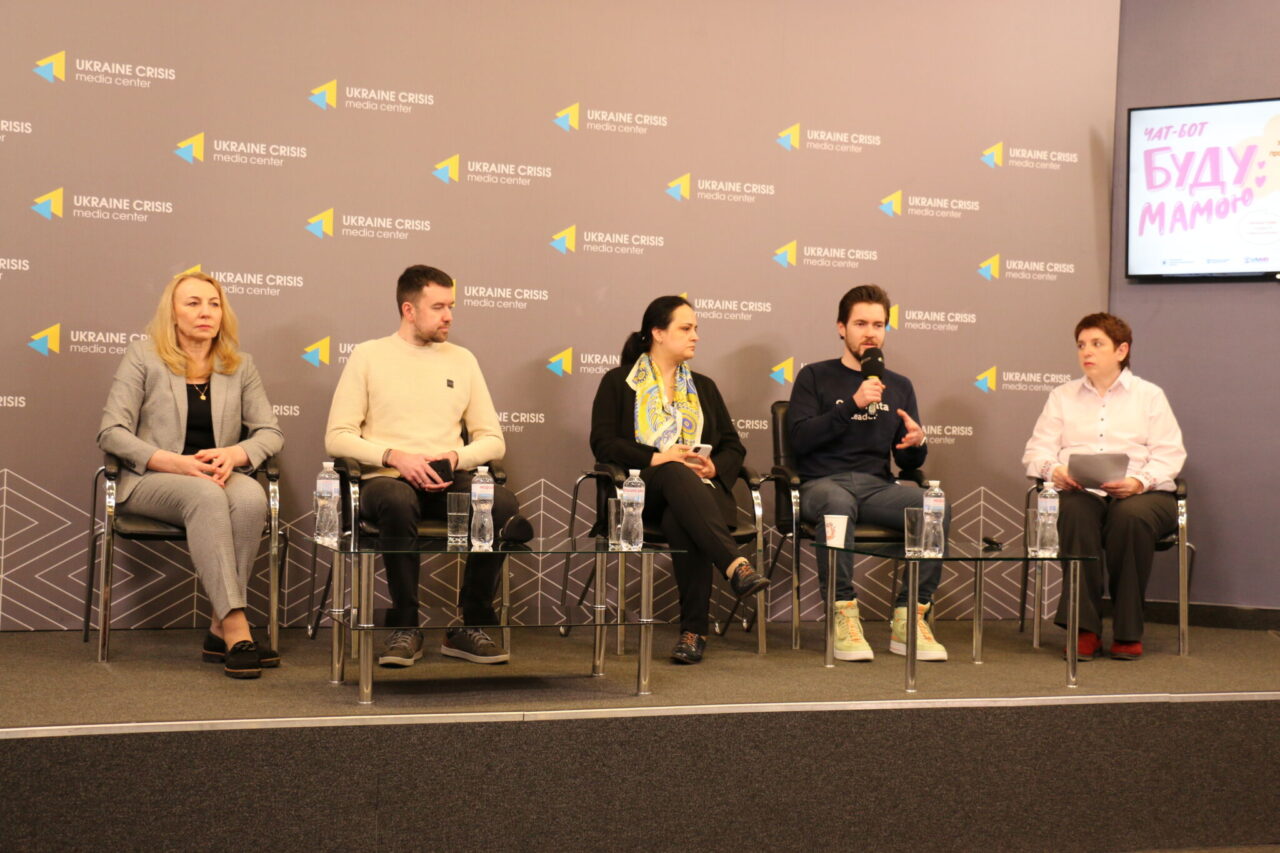
Since February 24, 2022 till the end of 2022, 195 thousand children were born in Ukraine. This figure may be higher, because a large number of pregnant Ukrainian women went to give birth abroad. First of all, this was influenced by the war and both economic and psychological uncertainty associated with it, second of all, by uncertainty about the future. People who decide to have children talk about high costs even at the planning stage and directly during pregnancy. And if you manage to have medical examinations, for which you do not have to pay, it is really an extraordinary luck and a happy occasion, pregnant women say.
Support of pregnancy and childbirth are priority healthcare services paid by the state under Ukraine’s Program of the Medical Guarantees. Therefore, all antenatal care appointments and checks shall be provided at no cost. In order to raise awareness of free-of-charge healthcare services during pregnancy and childbirth, the Chatbot I’ll Be Mother was created.
“Helping Ukrainians receive free medical care is the goal of our public organization. The Chatbot I’ll Be Mother is a new open-data based project. This is an electronic assistant supporting pregnant women,” says Nataliia Huran, head of the NGO Drugs Control. “They are young and for many of them, pregnancy care is their first experience with the healthcare system. I’ll Be Mother will guide them through free medical care services during pregnancy and childbirth without myths and stereotypes, so that they will be able to find the best healthcare establishment for themselves. The Chatbot informs future mothers of the healthcare reform centered around a patient and her future newborn, their lives and health.”
The Chatbot I’ll Be Mother is developed on the basis of open data. It contains a step-by-step algorithm on how to get free pregnancy support, medical assistance during childbirth and neonatal services. A woman indicates her week of pregnancy, receives a list of checks she needs to have and immediately finds a hospital where these services are provided free of charge (regardless of a pregnant woman’s registered or actual place of residence). That is, in just two clicks you will be able to save a lot of time, effort and money.
“The demographic crisis that may be caused by the war in Ukraine poses a serious threat to the future of our country. Therefore, now it is very important to support expectant mothers. The Chatbot I’ll Be Mother will allow Ukrainian women to learn about free support for pregnancy and childbirth. This Chatbot was created based on the open medical data of the National Health Service of Ukraine in collaboration with medical doctors,” said Mykhailo Korneev, Head of the Open Data Expert Group under the Ministry of Digital Transformation of Ukraine. “We believe that it will become an irreplaceable tool for every woman who plans to give birth in Ukraine.”
To develop this Chatbot, its creators involved a team of qualified professionals: both members of nongovernmental organizations and obstetrician-gynecologists. Certain sections of the Chatbot are devoted to debunking the myths and prejudices associated with pregnancy. The Chatbot also contains Patient Memos to explain patients’ rights to receiving free medical services.
The Project was implemented by the NGO Drugs Control and the Charitable Foundation 280 Days with funds from the USAID / UK Aid Project Transparency and Accountability in Public Administration and Services / TAPAS and with the assistance of the Ministry of Digital Transformation of Ukraine. The Project partner is East Europe Foundation.
The Chatbot is available in popular messengers: Telegram and Viber.
The Project to create the Chatbot I’ll Be Mother won the Open Data Services Support Grant Competition. To develop the Chatbot, the NGO Drugs Control and the Charitable Foundation 280 Days partnered with doctors from the Kyiv City Maternity Hospital No. 1.
The Project was created thanks to support from the USAID / UK Aid Project Transparency and Accountability in Public Administration and Services / TAPAS and with the assistance of the Ministry of Digital Transformation of Ukraine. The Project partner is East Europe Foundation.